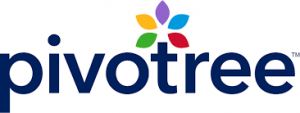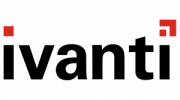How to Develop an Effective Mentorship Program
A great mentorship program can help groom employees for senior leadership positions. But mentorship opportunities can be powerful for all staff members, no matter their future intentions or level of seniority. Your company could benefit from higher employee satisfaction and retention by implementing a mentorship program.
But what makes a mentorship program effective? Here are four ways you can make sure your company’s mentorship program is having an impact.
Talk to mentors
Mentorship is not only beneficial for the mentees but also for mentors. Mentors benefit from exposure to the next generation’s way of thinking. It’s also an opportunity for them to grow their leadership and management skills while adding to their CV.
Many senior-level employees discover a desire to branch off into consulting or teaching as a complement to their main job. Any CEO can corroborate that a speaking career is a value-add to their position within the company with regard to brand visibility and expertise development. Mentorship is a fantastic opportunity for experienced employees to give back.
Talk to mentees
Before launching a mentorship program, a company should speak directly with its employees about their goals and needs. What do they wish to achieve with a mentor’s help? Keep in mind that employees should not usually be paired with their managers as mentors, as this can add extra stress.
Mentee goals can help guide the structure and timing of a mentorship program. Plus, any effective program needs KPIs to allow for assessment. Potential mentees can help surface KPIs, such as frequency of meetings, comfort with public speaking, size of professional network, etc.
Structure it with intention
Once your company is clear on its goals, it can begin to establish a structure for the mentorship program. Mentorship programs will look very different from company to company. That’s normal! Some companies are focused on developing leaders whereas other programs aim to increase retention of historically marginalized groups like women and people of color. Don’t try to do it all within the same program. Start with one clear objective and work from there.
Make sure that everyone at the company understands the value of mentorship. The program will not be effective if people don’t see it as important. Clearly communicate the benefits to be gained and make it known that employees can take time out of their day to work with mentors or mentees. A recent study found that 41% of mentees had difficulty getting time with their professional mentors.
People are likely to miss mentorship meetings if the company culture does not value it. Structure your mentorship program with regular meetings and consider rewarding mentors for showing up.
Evaluate it regularly
Once you’ve established your mentorship program, it is essential to evaluate it regularly against your original objectives. Is it working for both mentors and mentees? Conduct regular evaluations approximately every 3 to 6 months. Check to see if mentees are reporting measurable progress on their goals. It’s also worth doing a companywide cost-benefit analysis to understand if it’s worth the time and energy.
Coaching isn’t always about short-term results, however. Keep in mind that effective mentorship programs shouldn’t always be overly quantified. At its foundation, great mentorship is about relationship building which can be tricky to measure. Don’t let this prevent your company from starting up a mentorship program.
An effective mentorship program is one in which all parties benefit from an open exchange of information. Mentors and mentees should feel that the relationship is worthwhile. It can take a few iterations to discover a structure that works for your company. But in the end, mentorship programs are a smart investment for companies of all sizes. They can increase retention, improve productivity, and strengthen relationships among employees of all seniority levels. Implement the above tips and your company will have the foundations of an effective mentorship program.












